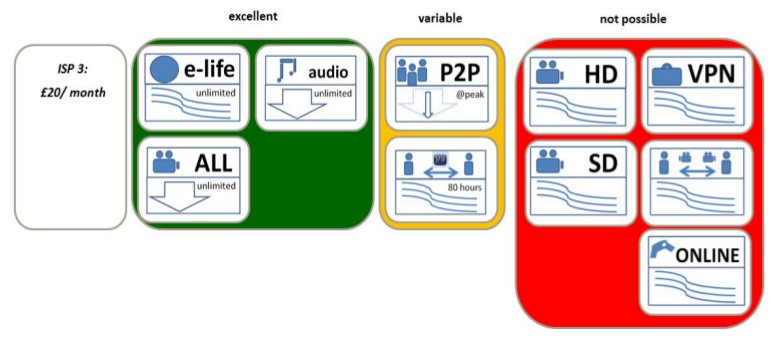The European body of telecommunications regulators has launched a consultation on its draft guidelines on “Net neutrality and transparency”. Quite shockingly, these guidelines have actually nothing to do with Net neutrality, and instead readily accept that telecom operators can restrict access to the Internet as long as users are informed. They only prove that mere transparency and competition will not prevent operators from violating Net neutrality.
In these guidelines on “Net neutrality and transparency”, the Body of European Regulators of Electronic Communications (BEREC) seeks to determine how users should be informed about the restrictions to their Internet access imposed by telecom operators. By doing so, BEREC pursues the vain logic of EU commissioner Neelie Kroes, who argued that people should “vote with their feet” by switching providers if they were not satisfied with their operator’s practices.
BEREC doesn’t seem worried by operators giving access to a crippled Internet where, for instance, P2P is throttled, Internet telephony applications are blocked, or Virtual Private Networks forbidden, as illustrated in its document (see below). Actually, evidence is already available that European operators engage in harmful practices, as demonstrated by citizen reports of dozens of breaches to Net neutrality on the RespectMyNet.eu platform1www.RespectMyNet.eu.
Arguing that transparency can protect users is irresponsible given the importance of Net neutrality for fundamental rights and the digital economy. Last week, the European Data Protection Supervisor (EDPS) issued an opinion which stressed the failure of such a wait-and-see approach2This approach, based on transparency and competition, results from the telecoms package, adopted in 2009.. According to the EDPS, access restrictions amount to monitoring and inspecting users’ communications, and violate the right to privacy. He concludes that people have the right to access an unrestricted, neutral Internet3For instance, it stresses that “additional legislative measures may be necessary. In such a case, the Commission should put forward policy measures aiming at strengthening the legal framework and ensuring legal certainty. New measures should clarify the practical consequences of the net neutrality principle, as this has already been done in some Member States, and ensure that users can exercise a real choice, notably by forcing ISPs to offer non-monitored connections.“.
The “wait-and-see” approach also overlooks the fact that in many EU markets, competition fails to provide people with a true Internet access, since all operators apply the same illegitimate restrictions, particularly in wireless communications.
The European Parliament, which is about to adopt a decisive resolution on Net neutrality, must absolutely denounce the failure of the “wait and see” approach defended by EU commissioner Neelie Kroes, and take a firm stance in favor of Net neutrality.


